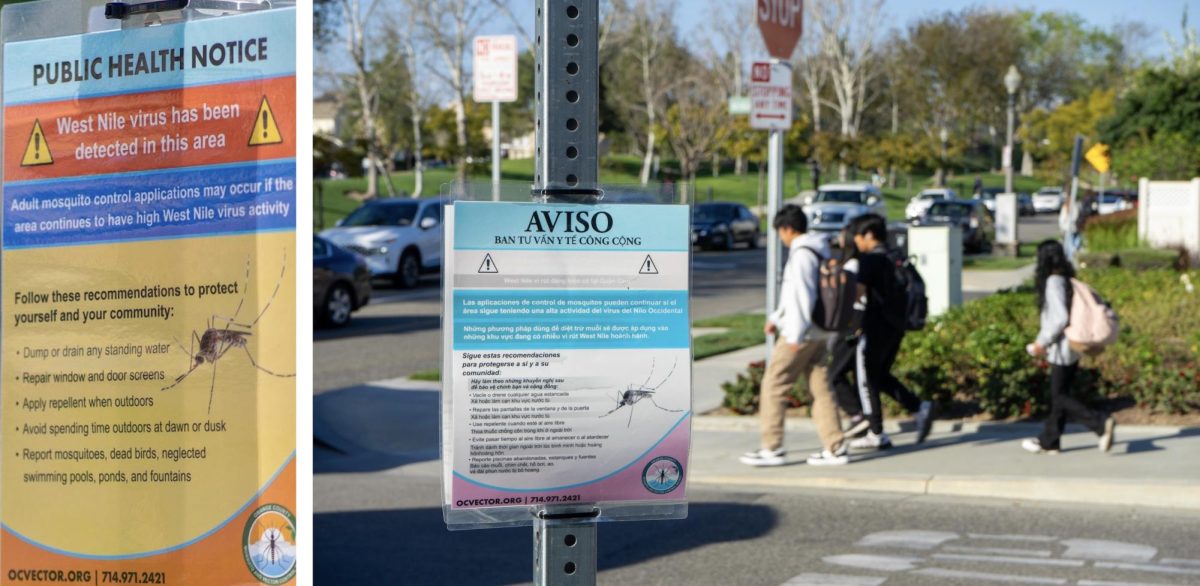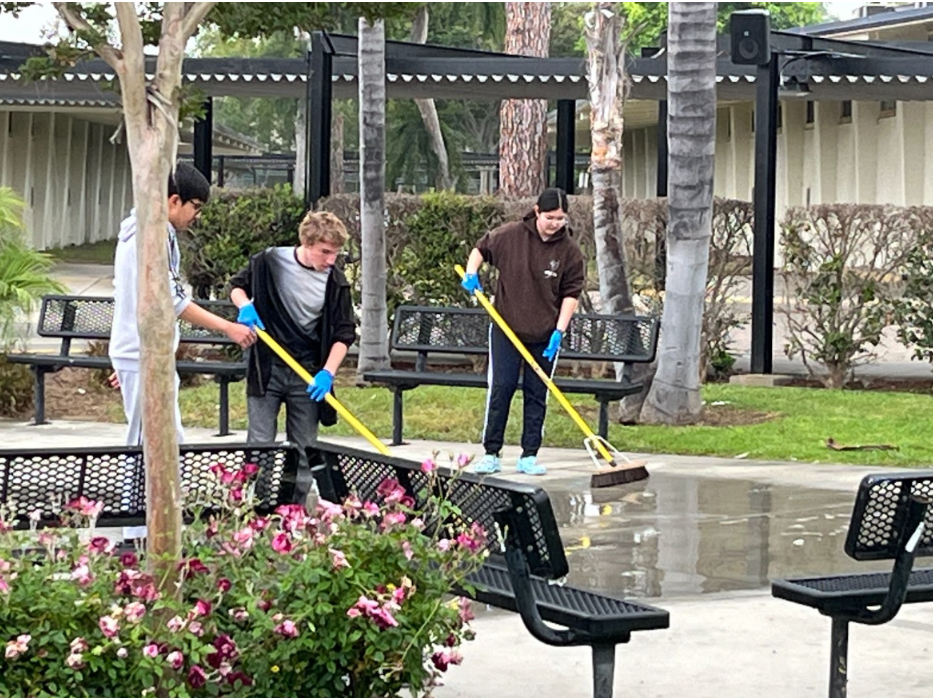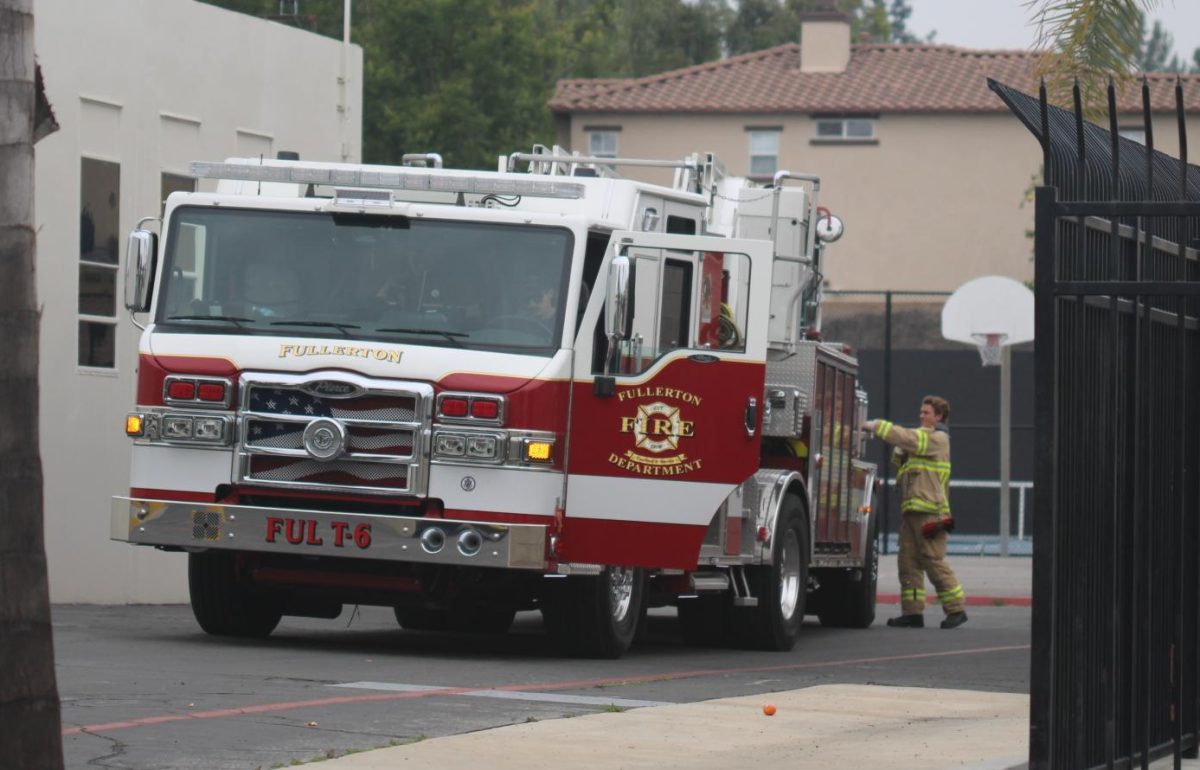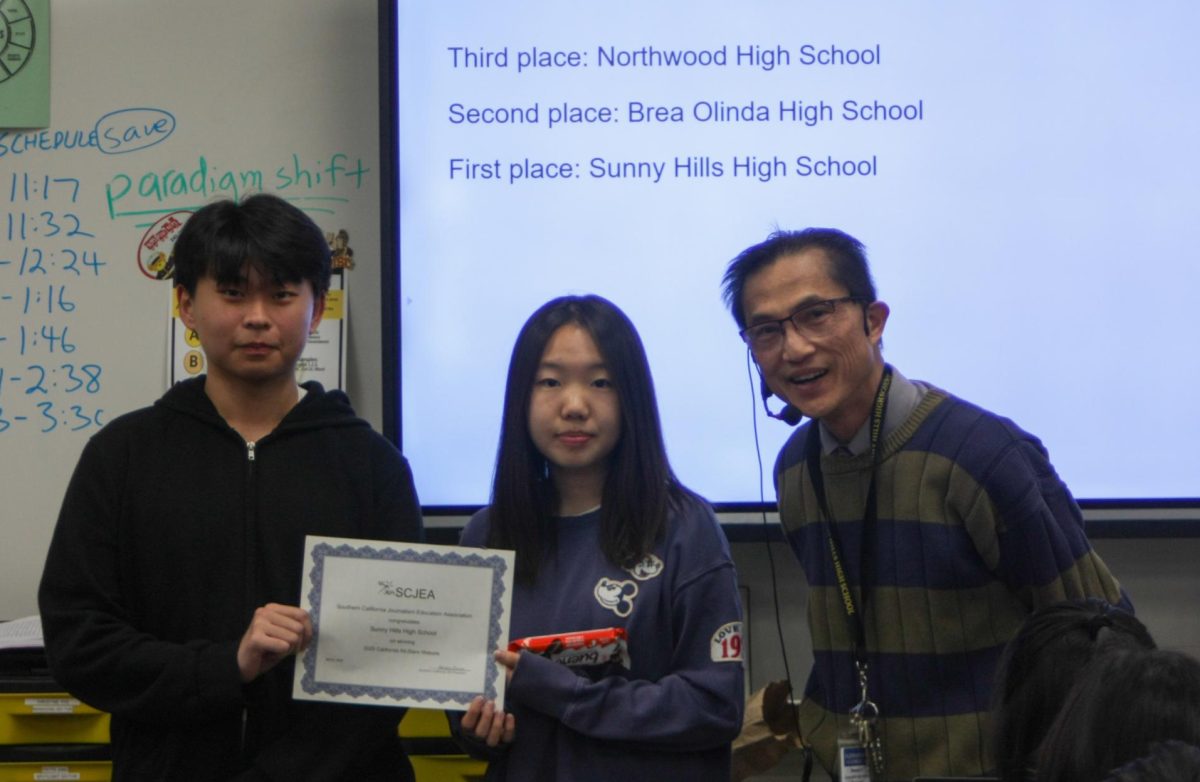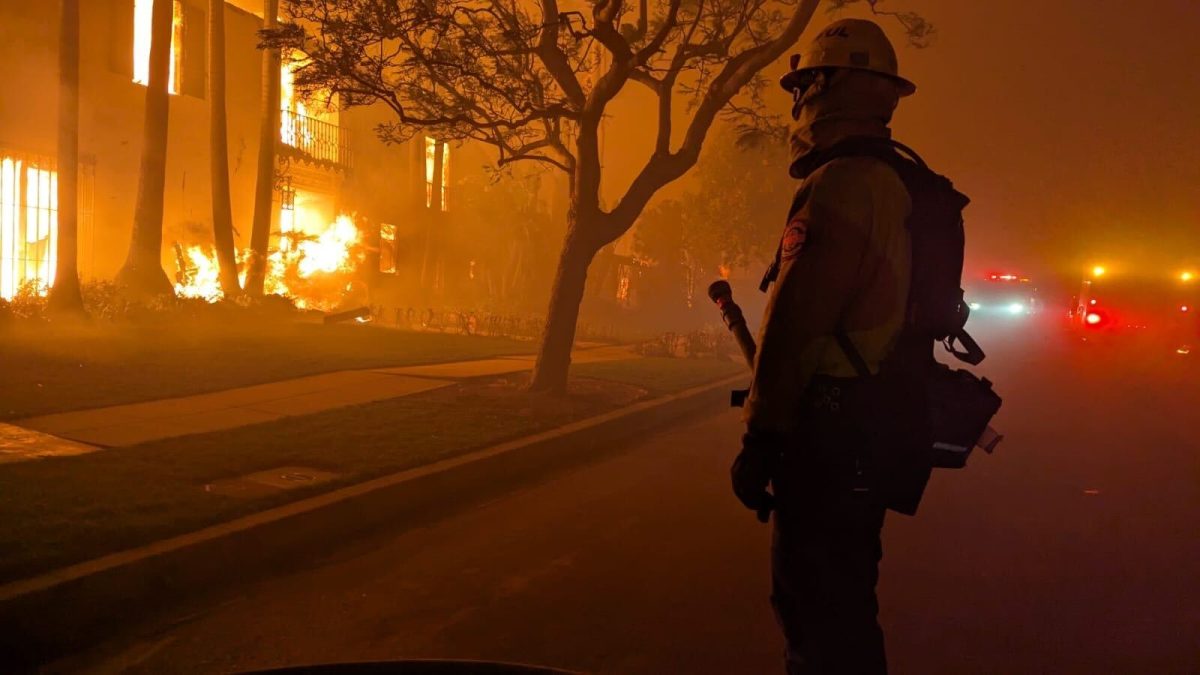After six months in which “PUBLIC HEALTH NOTICE” disease detection signs were placed outside of the Sunny Hills west parking lot, officials have removed the placards.
Orange County Mosquito and Vector Control District [OC Vector] officials could not be reached for comment Wednesday, March 27, to explain why the notices have been taken down, most likely upon students’ return from spring break or earlier.
But as of this week, the Orange County West Nile virus [WNV] threat remains low, and plastic cards have shown signs of wear and tear from recent rains over the past few months.
Nevertheless, as of January, OC Vector officials did not give any indication that these notices would be removed.
“The signs are a notification that we put in the area, so it is our job to place those signs to notify the community that there is West Nile in the area,” said Michael Gomez, a customer representative with OC Vector. “Typically, the signs stay up for a year, just to be safe.”
Gomez said the notices were first posted by “seasonal assistants” last October after OC Vector’s biweekly mosquito trapping. When officials tested those insects found near Sunny Hills in the OC Vector laboratory, they tested positive for the West Nile virus.
Workers then used zip ties to put up the multi-color, laminated signs – 8.5 inches wide by 11 inches high, similar to the size of a regular sheet of paper – around the Sunny Hills neighborhood, including lampposts on Benchley Street and throughout the rest of the Amerige Heights community across from the campus.
One side of the label features warnings and messages in English; the other side of the poles has the same information in Spanish and Vietnamese.
Underneath “PUBLIC HEALTH NOTICE” in black, bold letters with a light blue background, the signs read: “West Nile virus has been detected in this area” in white. A yellow triangle with an exclamation mark inside borders that statement to the left and right margins along with an orange background.
Underneath “West Nile virus has been detected in this area” in white, small letters with a dark blue background, the signs read: “Adult mosquito control applicators may occur if the area continues to have high West Nile virus activity.”
Beneath that section, Vector control officials list five “recommendations to protect yourself and your family” – going back to the black lettering with a yellow background. To the right lies an image of a mosquito five lines deep in size.
The Centers for Disease Control and Prevention [CDCP] considers WNV to be the “leading cause of mosquito-borne disease in the United States.”
It also provides the following description of its severity: “It is most commonly spread to people by the bite of an infected mosquito. Cases of WNV occur during mosquito season, which starts in the summer and continues through fall.
“There are no vaccines to prevent or medications to treat WNV in people. Fortunately, most people infected with WNV do not feel sick.”
The CDCP considers the risk of those infected with WNV to show signs of fever and other symptoms to be at 1 in 5 cases, or 20%; 1 in 150 – or about 0.67% – “infected people develop a serious, sometimes fatal, illness.”
As of the end of December, 16 mosquitos have tested positive for carrying WNV in Fullerton, according to OC Vector.
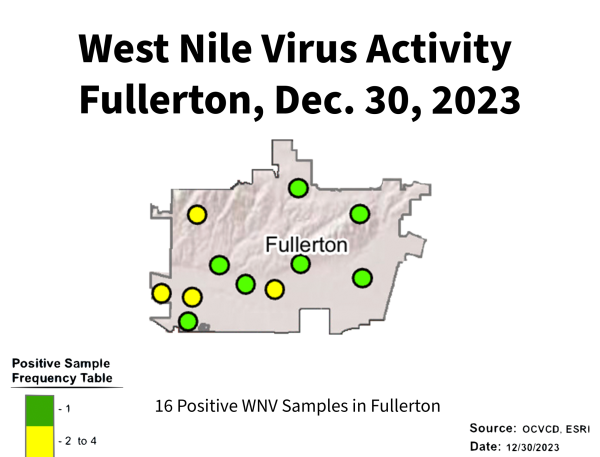
TOO SMALL TO NOTICE
An Accolade poll of 138 respondents, administered from Wednesday, Dec. 13-Monday, March 25, showed that 41% of students have seen the signs while 59% have not.
Sunny Hills school officials – including assistant principal Sarah Murrietta, who oversees campus facilities and maintenance – were not aware of the posting. Gomez said his agency is not required to notify school officials of its actions.
Murrieta said so far this school year, she has not received any complaints from students, teachers or staff about mosquito bites.
“Our district does have a pest control service that they utilize for routine services on our campus,” she said. “If we ever do have a concern about an increase of mosquitoes or other types of bugs, we can always reach out to [our pest control service] to increase our service or focus on specific areas of need.”
Sophomore Aimee Rivera said she first spotted the sign near the west parking lot driveway entrance in the middle of November.
“I feel that it increases awareness about how to be more safe from mosquitos because if you don’t see [information about the virus], people might not think about it,” Rivera said.
Though she has no major concerns about contracting the virus, the sophomore has changed what she wears to school.
“I did feel a bit fearful to wear shirts and shorts [to school] since I didn’t want to get bit by [a mosquito],” Rivera said.




